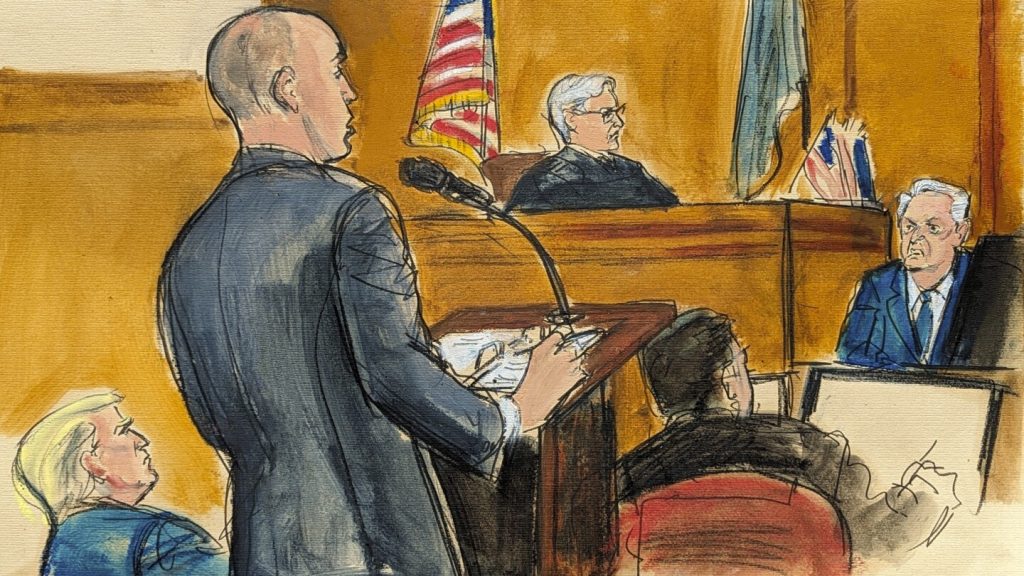In Donald Trump’s hush money trial, his legal team rested its case after calling just two witnesses and opting not to have Trump take the stand in his defense. This is not unusual, as defense lawyers typically focus on challenging the prosecution’s case and creating reasonable doubt. Trump is charged with falsifying records to conceal payments made to his lawyer, Michael Cohen, for suppressing negative stories during the 2016 campaign. The defense’s work often involves cross-examining prosecution witnesses and challenging their credibility.
The defense team’s strategy involves presenting their narrative during cross-examination and tying it together in the closing statement. It is not uncommon for defense lawyers to call few witnesses, as a significant amount of their work is done outside the courtroom to prevent incriminating evidence from being admitted. While Trump had hinted at testifying, legal experts believed it was unlikely due to potential risks, such as introducing harmful evidence. Trump’s lawyers have focused on damaging the prosecution’s case and arguing that there is not enough evidence to convict the former president.
The defense’s main witness, attorney Robert Costello, testified about conversations with Cohen and Trump’s alleged knowledge of hush money payments. Despite Costello’s testimony, legal experts questioned its impact on Trump’s case. Cohen’s credibility was a significant point of focus for the defense, emphasizing his history of lying, stealing, and contradicting his guilty pleas. Former CFO Allen Weisselberg, who had knowledge of the payments, did not testify due to credibility issues stemming from a recent jail sentence for lying under oath.
Closing arguments in the trial are expected on May 28, with the defense focusing on challenging the prosecution’s evidence and creating reasonable doubt. The defense team’s strategy of calling few witnesses and focusing on their cross-examination tactics is a common approach in criminal trials. The decision not to have Trump testify was based on the potential risks and the belief that they had made sufficient progress in damaging the prosecution’s case. Ultimately, the outcome of the trial will depend on the effectiveness of the defense’s arguments and the prosecution’s ability to prove Trump’s guilt beyond a reasonable doubt.


